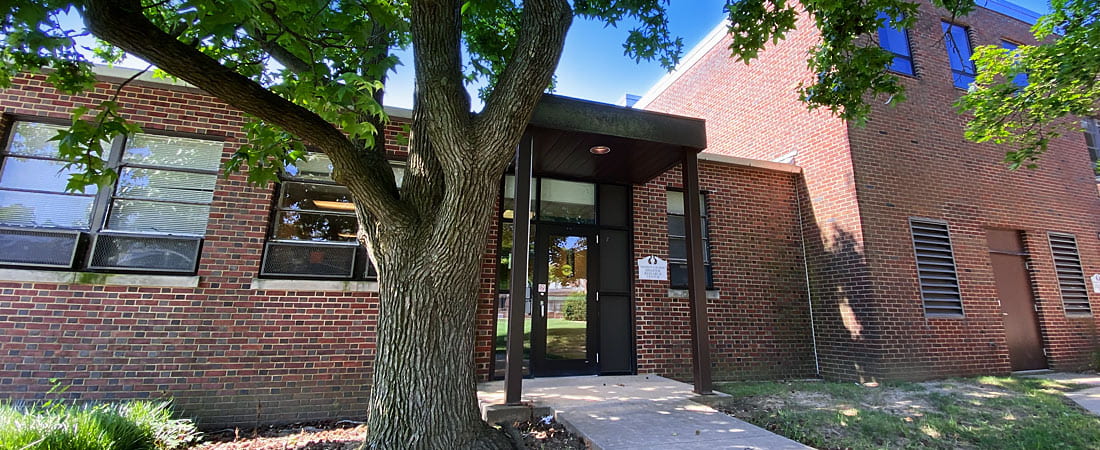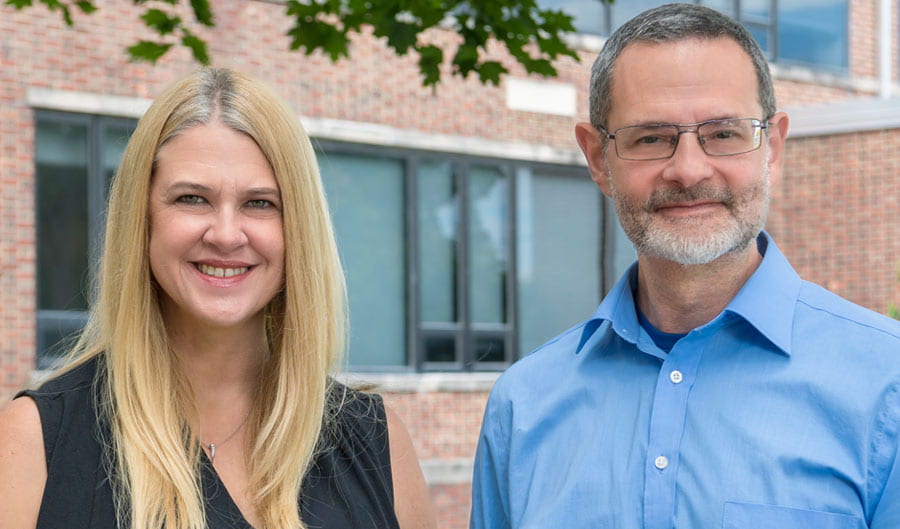The purpose of graduate education in Disaster Science & Management is to provide students with the intellectual ability to understand, create, integrate, and apply sophisticated discipline- specific interdisciplinary knowledge to the disaster preparedness, response, recovery and mitigation. Recognizing that the discipline itself is inherently interdisciplinary and continues to evolve, students are expected to acquire the vocabulary and critical thinking skills to acquire and evaluate future knowledge.
Toward these ends, the following are the goals for the DISA PhD:
- Program Educational Goal #1 : Students will be able to explain the development of disaster science as an interdisciplinary field. This includes the principal theoretical approaches from geography, sociology, political science, and anthropology and how they have evolved over time.
- Program Educational Goal #2 : Students will articulate how the interconnection of social, natural, and technical systems generates hazards and vulnerabilities along axes of gender, race, class, sexuality, and age, among other human attributes, characteristics, and identifiers.
- Program Educational Goal #3 : Students will comprehend theories of individual and organizational responses to hazard and disaster in such areas as warning, evacuation, donations, volunteers, emergence and convergence, and other areas.
- Program Educational Goal #4 : Students will critically analyze scientific arguments; dissect the structure and argumentation style of scientific papers; and form research questions, propositions, and hypotheses.
- Program Education Goal #5 : Students will demonstrate the ability to conduct independent research and writing by developing, proposing, and implementing a research plan leading to a successful dissertation.

Program Policy Document:
Please see the Program Policy Document for more information.
Requirements for the Degree:
The Doctor of Philosophy in Disaster Science & Management requires 47 credits of graduate- level coursework beyond the Master’s degree including 9 credits of dissertation. Students are expected to demonstrate interdisciplinary strength across both social disaster sciences and engineering or natural disaster sciences, as well as advanced methodological skills. The 47 credits of coursework are specified in the individual planned program of study, and must include:
Core Requirements:
- SOCI 672 - Disaster and Society Credit(s): 3
- CIEG 641 - Risk Analysis Credit(s): 3
Equity, Justice, Disparities, or Vulnerability of Disaster:
3 credits. Choose one of the following:
- SOCI 671 - Disasters, Vulnerability & Development Credit(s): 3
- SPPA 614 - Environmental Justice in Disasters Credit(s): 3
or another course as approved by the Disaster Science & Management Program committee or a designated sub- committee.
Disaster-focused Social/Public Health Sciences:
- ANTH 640 - Disaster Anthropology Credit(s): 3
- DISA 650 - Overview of Disaster Science and Management Credit(s): 3
- DISA 652 - Issues in Disaster Recovery Credit(s): 3
- DISA 655 - Disasters and Cultural Change Credit(s): 3
- DISA 657 - Challenges in Disaster Preparation Credit(s): 3
- DISA 670 - Issues in Disaster Response Credit(s): 3
- EPID 622 - Disaster Epidemiology Methods Credit(s): 3
- SPPA 619 - Climate Change Adaptation Policy & Practice Credit(s): 3
or another course as approved by the Disaster Science & Management Program committee or a designated sub-committee.
Physical or Natural Science or Engineering:
- CIEG 645 - Industrial Ecology Credit(s): 3
- CIEG 680 - Coastal Processes Credit(s): 3
- GEOG 609 - The Ocean and Climate Change Credit(s): 3
- GEOG 652 - Seminar in Climatology Credit(s): 3-12
or another course approved by the Disaster Science & Management Program committee or a designated sub-committee.
Other Requirements:
Interdisciplinary research and grant proposal development.
- DISA 880 - Interdisciplinary Grant Design Credit(s): 3
Research Methods/Analysis Courses
(9 credits, 6 credits at advanced level)
Courses must be pre-approved by the Disaster Science & Management Program committee or a designated sub-committee.
Pre-approved advanced research methods/analysis courses:
6 credits. Choose two of the following:
- EDUC 812 - Regression and Structural Equation Modeling Credit(s): 3
- EDUC 873 - Multilevel Models in Education Credit(s): 3
- EDUC 884 - Advanced Research Design for Causal Inference Credit(s): 3
- EPID 610 - Epidemiology Methods II Credit(s): 3
- EPID 615 - Epidemiology Methods III Credit(s): 3
- GEOG 671 - Advanced Geographic Information Systems Credit(s): 3
- SOCI 614 - Advanced Data Analysis Credit(s): 3
- SOCI 625 - Advanced Social Statistics Credit(s): 3
- SOCI 676 - Advanced Qualitative Methods Credit(s): 3
- SPPA 704 - Advanced Quantitative Methods Credit(s): 3
- SPPA 721 - Data Science Tools for Evidence-based Policy Credit(s): 3
- SPPA 722 - Machine Learning for Public Policy Credit(s): 3
- SPPA 800 - Research Design and Data Analysis Credit(s): 3
- UAPP 709 - Advanced Topics in Economics for the Public and Non-Profit Sectors Credit(s): 3
Pre-approved non-advanced research methods/analysis courses:
- EPID 605 - Epidemiology Methods I Credit(s): 3
- EPID 621 - Methods in Field Epidemiology Credit(s): 3
- EDUC 858 - Advanced Qualitative Research Methods Credit(s): 3
- EDUC 859 - Qualitative Methodology Research Workshop Credit(s): 3
- GEOG 670 - Geographic Information Systems and Science Credit(s): 3
- HBNS 634 - Health Science Data Analysis Credit(s): 3
- SOCI 605 - Data Collection and Analysis Credit(s): 3
- SOCI 606 - Qualitative Methodology Credit(s): 3
- SPPA 718 - Survey Research Methods Credit(s): 3
- SPPA 808 - Qualitative Research Methods Credit(s): 3
- UAPP 691 - Quantitative Analysis in Public and Nonprofit Sectors Credit(s): 3
- UAPP 693 - Economics in Public & Nonprofit Sectors Credit(s): 3
Additional Substantive Graduate Coursework:
9 credits.Three of following (if foundational knowledge is required, or 9 credits of 600-level or higher coursework related to individual research with advisor approval):
- SOCI 647 - Disparities in Heath & Healthcare Credit(s): 3
- SOCI 661 - Racial Stratification Credit(s): 3
- UAPP 648 - Environmental Ethics Credit(s): 3
- UAPP 665 - Climate Change: Policy, Equity and Mitigation Credit(s): 3
- UAPP 810 - Political Economy of the Environment Credit(s): 3
Dissertation:
- SPPA 969 - Doctoral Dissertation Credit(s): 1-12
Doctoral Professional Development:
(1 credit during first two semesters; 2 credits total)
- SPPA 861 - Academic and Professional Development for UAPP, DISA, ENEP Doctoral Students Credit(s): 0-1
Credits to Total a Minimum of 47
Last revised 2024-2025 academic year.
DISASTER RESEARCH CENTER
Workshop on disaster research: innovating for an imagined disaster future.
In honor of the 60th anniversary of its founding, the Disaster Research Center will host an international workshop. Submit an idea for an activity, film screening, presentation, or panel, or simply plan to join us for an engaging weekend of thought-provoking discussions about the hazards and disasters on the horizon.
UD's Disaster Research Center awarded $16.5 million
The UD-led hub — Coastal Hazards, Equity, Economic prosperity and Resilience (CHEER) — is one of five NSF-funded projects announced recently as part of the agency’s Coastlines and People program, which is infusing $51 million in research funding to protect the natural, social and economic resources of U.S. coasts, and to help create more resilient coastal communities.
DRC Around the World
DRC researchers have conducted over 700 field studies, including quick response studies and field deployments, since the center’s inception. These deployments include traveling to communities throughout the United States and abroad and include studies on a broad range of disasters.
From Delaware to Nepal
Much of what is known about disasters is learned in the immediate period following the disaster impact. For six decades, DRC has led the way in its approach to conducting quick response field work. Our team is on the frontlines helping us understand and assess how policies, infrastructure and response activities affect a communities, states, or regions.
A Hidden Gem located on the Newark campus
Centrally located on the University of Delaware’s main campus in Newark, the Disaster Research Center (DRC) is a member of UD’s vibrant network of research institutes and centers that advance research and discovery at UD. DRC is housed at 166 Graham Hall, 111 Academy Street and is easily accessible.

The Disaster Research Center (DRC) was established in 1963 and relocated to the University of Delaware, a nationally ranked research institution, in 1985. DRC is one of over 80 research institutes and centers housed at UD and was the first in the world devoted to the social scientific study of disasters.
The Disaster Research Center (DRC) is committed to advancing the state of the art in disaster research and its scientifically guided practice; educating the next generation of disaster science scholars and informed practitioners in the fields of disaster mitigation, preparedness, response, and recovery; and creating, gathering, and disseminating disaster knowledge in a dynamic and responsive way.
Our Research Projects
DRC researchers focus on a broad range of disaster-related topics. These include impacts of natural or human-induced hazards, epidemics, and challenges associated with climate change. Delve into our portfolio of current and recently-completed projects.
This educational initiative makes academic research more accessible. Our products provide scientifically-informed guidance for practitioners, media outlets, and disaster science scholars in multiple formats. Discover our latest topics.
Quarantelli Collection
The E. L. Quarantelli Resource Collection is the world’s leading collection of disaster-related material. Composed of archival holdings, published material and artifacts, the collection is open to scholars and others interested in disaster-related topics.
DRC staff comprises experienced professionals dedicated to serving our diverse constituents in public service, education, and research. We welcome inquiries about collaboration, visits, and archival research, and look forward to working with you!


Supporting disaster research across UD and abroad
The Disaster Research Center has been involved in more than 700 field studies, with more than 1,000 trips to sites around the world. And it all starts here.

Research News & Events
DRC News and Events highlights the innovative work spearheaded by our Center’s faculty, students, and staff. Here you can learn about our latest research and how our team is advancing knowledge about some of the most complex questions of our time. Read more!

Discover the wide range of field studies that DRC researchers have conducted in the United States and internationally. Using our interactive map, explore 60 years of studies on disasters associated with natural and technological hazards and civil disturbances. Learn more here .

DRC in the Media
DRC researchers are renowned for their expertise on the many ways disasters intersect the social, natural, and built environment. These experts offer insight into breaking news and have been cited in major global publications. Learn what our expert have to say.

Leading the Way
The Disaster Research Center (DRC) is led by Directors Jim Kendra, professor, Biden School of Public Policy and Administration, and Tricia Wachtendorf, professor, Department of Sociology and Criminal Justice. DRC’s more than forty faculty, professional staff, and students are deeply committed to making scientific advances that improve the lives of people threatened by disaster. Through deep integration of interdisciplinary perspectives, the DRC team prioritizes work that places urgent social problems at the forefront, while drawing on a vast array of theories, methods, and approaches to address them.
Email Address
Company / Institution Name

A UNIVERSITY OF DELAWARE RESEARCH CENTER UD Research Office • 302-831-4007
- © University of Delaware
- Legal Notices
- Accessibility Notice

UCL Department of Risk and Disaster Reduction
How to apply
Why choose us.

The department is devoted to producing world-leading research across the natural, social and human sciences, dedicated to global risk and disaster reduction. Our research students are crucial to this mission. We pride ourselves on welcoming and supporting excellent research students from all around the world who wish to contribute to our goals and to our research community.
In RDR, we have a welcoming and inclusive scholarly community in which research students play an integral part. As a research student, you will actively contribute to the research that we collectively produce. In addition to the supervisory team, we have regular annual events and workshops in which doctoral students play a central part and in which we showcase the research being carried out in our department.

Meet our students

UCL Doctoral School
- People Directory

- Recognition & Rankings
- Notice of Non-Discrimination
- Outcomes Data
- Recruitment Events
- Connect Newsletter
- Diversity Equity Inclusion
- Fellowships
- Internships
- Student Association
- Alumni Engagement
- Financial Aid
- Concentrations
- ENEP Internship
- Our Students Say...
- Leadership Alumni Testimonials
- Alumni Career Paths and Internships
- Graduate Education Options
- Concentration Courses
- Learning Goals
- Honors Undergraduate Degrees
- Minor in Energy & Environmental Policy
- Minor in Leadership
- Minor in Public Health
- Minor in Public Policy
- Pre-Application Steps
- How to Apply to 4+1 Programs
- Hands-on Experience
- Undergraduate Student Groups
- Study Abroad
- Semester in DC
- Application Materials & Deadlines
- Admission Criteria
- International Students
- Virtual Campus Tour
- Request More Information
- Specializations
- Plan of Study
- Recent Theses
- Student Life
- Historic Preservation Certificate
- Nonprofit and Voluntary Action Certificate
- Public Health Preparedness Certificate
- Urban Data Science Certificate
- Graduate Tuition
- Research Assistantships
- University Graduate Scholars Awards
- Financial Aid Terms
- Sample Internship Opportunities
- Legislative Fellows
- Research and Public Service
- Past Study Abroad Activities
- Careers Currently selected
- Ph.D. in Public Policy and Administration
- PhD in Education and Social Policy
- Research & Service Activities
- Research & Public Service Centers
- Biden Institute
- CADSR - Center for Applied Demography & Survey Research
- CCRS - Center for Community Research & Service
- CEEP - Center for Energy and Environmental Policy
- CHAD - Center for Historic Architecture & Design
- DRC - Disaster Research Center
- IPA - Institute for Public Administration
- Messick Fellows Program
- Event Gallery
- SNF Ithaca Student Leaders
- SNF Ithaca Fellows
- All Politics Is Personal Video Series
- SNF Ithaca National Student Dialogue
- SNF Ithaca Leadership Summit
- Emeritus Faculty
- Research and Public Service Professionals
- Administrative Staff
Image Library
Upload new images. The image library for this site will open in a new window.
Document Library
Upload new documents. The document library for this site will open in a new window.
Show Web Part Zones
Show web part zones on the page. Web parts can be added to display dynamic content such as calendars or photo galleries.
Page Layout
Choose between different arrangements of page sections. Page layouts can be changed even after content has been added.
Toggle Navigation
Open the Navigation Management window, which can be used to view the full current branch of the menu tree, and edit it.
- Research & Service Activities

Move this whole section down, swapping places with the section below it.
Code Cleaner
Check for and fix problems in the body text. Text pasted in from other sources may contain malformed HTML which the code cleaner will remove.
Accordion is OFF
Accordion feature turned off, click to turn on.
Accordion is ON
Accordion feature turned on, click to turn off.
Image Rendition
Change the way the image is cropped for this page layout.
Cycle through size options for this image or video.
Media Right/Left-Align
Align the media panel to the right/left in this section.
Insert Image
Open the image pane in this body section. Click in the image pane to select an image from the image library.
Insert Video
Open the video pane in this body section. Click in the video pane to embed a video. Click ? for step-by-step instructions.
Remove Image
Remove the image from the media panel. This does not delete the image from the library.
Remove Video
Remove the video from the media panel.
Graduates of the Disaster Science & Management program have many different career paths in this emerging field. Some become academics and researchers (many M.S. students who aspire to a scholastic career will continue on in the Ph.D. program), while others find placement in local, national, and international disaster and emergency management organizations. All of our students take a unique interdisciplinary blend of science and practice to their careers after graduation. The majority of our graduates are working in the field.
Move this whole section up, swapping places with the section above it.
- California Resiliency Alliance
- City of Berkeley Emergency Management
- Disaster Recovery Outreach and Communications Coordinator New Jersey
- Planner, Delaware Emergency Management Agency
- Emergency Management Project Coordinator, Kentucky Emergency Management
- Red Cross
- Science writer working for a NOAA contractor
- U.S. Coast Guard
- Team Rubicon
- FEMA Region III
- SUNY Albany
- Jacksonville State University
- Oklahoma State University
- University of Central Missouri
- National Oceanographic and Atmospheric Administration
- US Air Force Academy, Colorado Springs
- US Military
- D'Youville College
- Federal Emergency Management Agency
- Senior Business Continuity Analyst at AmeriHealth Caritas
- National Weather Service
- Cecil County, MD Emergency Management
- Delaware Emergency Management
- New Castle County, DE Emergency Management
- Pacific Disaster Center
- COT Institute for Crisis and Safety, Netherlands ( www.cot.nl .)
- Mid Sweden University
- Lund University, Sweden
- Australian Red Cross

IMAGES
VIDEO
COMMENTS
The doctoral program in disaster science and management approaches disasters and emergencies from an interdisciplinary point of view. The program emphasizes theories, research methodologies, and policies related to emergency preparedness, mitigation, management, and response.
The Ph.D. in Disaster Science and Management programs approach disasters from an interdisciplinary science point of view. The programs emphasize theories, research methodologies, and policies related to risk, disasters, environment, climate, emergency preparedness, mitigation, management, and response.
The purpose of graduate education in Disaster Science & Management is to provide students with the intellectual ability to understand, create, integrate, and apply sophisticated discipline- specific interdisciplinary knowledge to the disaster preparedness, response, recovery and mitigation.
Centrally located on the University of Delaware’s main campus in Newark, the Disaster Research Center (DRC) is a member of UD’s vibrant network of research institutes and centers that advance research and discovery at UD. DRC is housed at 166 Graham Hall, 111 Academy Street and is easily accessible. The Disaster Research Center (DRC) was ...
A Risk and Disaster Reduction MPhil/PhD provides excellent networks and training for careers in research, research communication, public policy, (re)insurance, catastrophe modelling, risk management, international development, humanitarian assistance, engineering and many other fields.
disaster science & Management. The goal of our distinctly interdisciplinary doctoral program is to create exceptional professionals who advance the understanding and application of the science focused on disasters, and who can serve as leaders and stewards of the discipline.
The objective of the DSEM Qualifying Examinations is to assess the student's ability to do interdisciplinary analysis, based on sound knowledge of core themes, good analytical methods, and the ability to structure and analyze disaster problems in a way that appropriately integrates the required knowledge, methods, and judgment.
The National Institutes of Health Disaster Research Response (DR2) program leads U.S. efforts and works with global partners to improve capacity for timely research related to disasters and public health emergencies. NIEHS coordinates the program.
PhD study. The department is devoted to producing world-leading research across the natural, social and human sciences, dedicated to global risk and disaster reduction. Our research students are crucial to this mission.
Some become academics and researchers (many M.S. students who aspire to a scholastic career will continue on in the Ph.D. program), while others find placement in local, national, and international disaster and emergency management organizations.